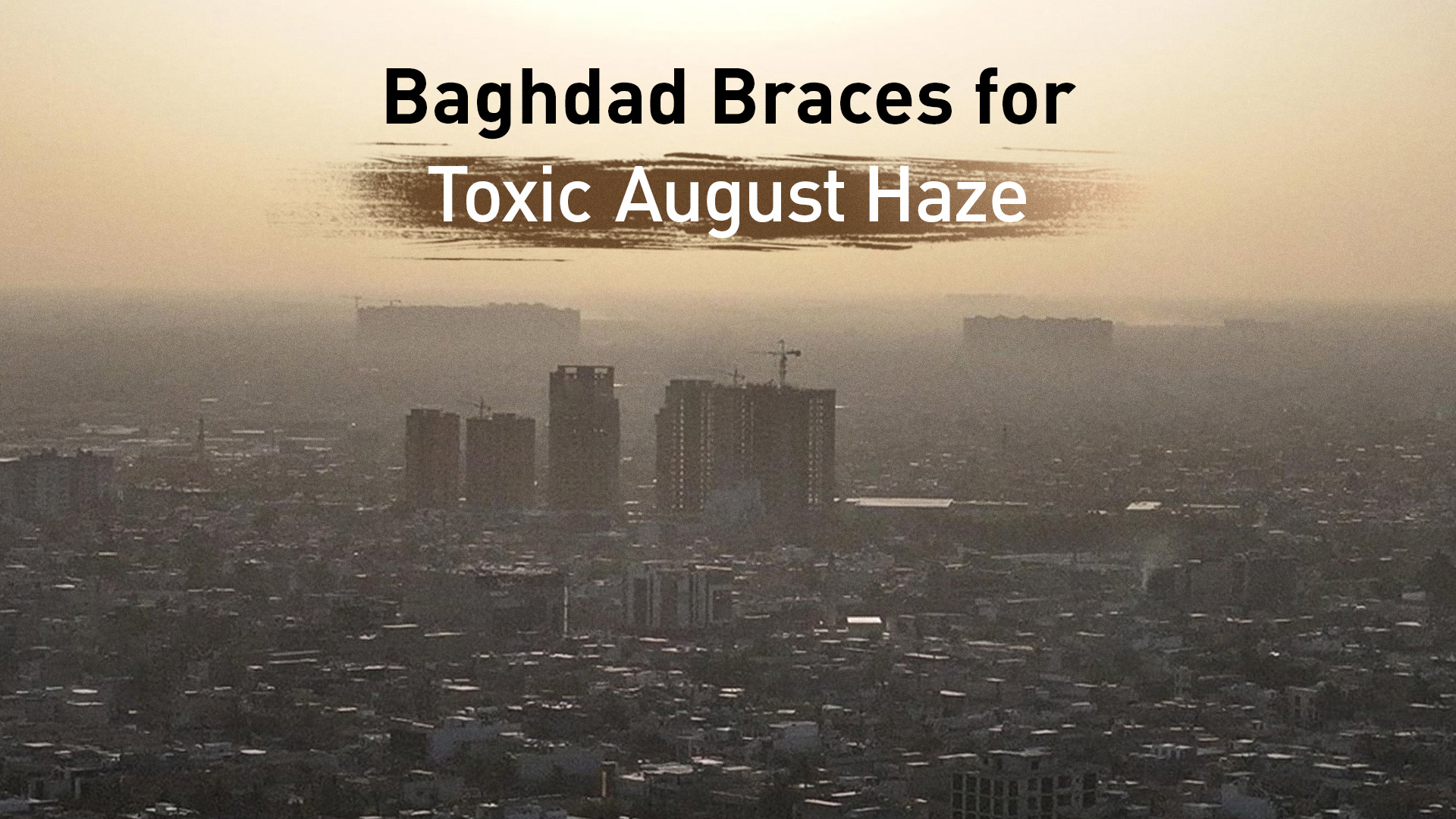Toxic August: Baghdad’s Deadly Air Returns
An environmental group warns Baghdad faces a recurring toxic haze in August from 20 poisonous gases. The threat, caused by pollution and a lack of regulation, poses serious risks to residents' health.

ERBIL (Kurdistan24) – An environmental watchdog is issuing a stark warning to residents of the Iraqi capital as the city braces for the return of a toxic odor that engulfs its skies each August, composed of a dangerous cocktail of 20 different poisonous gases that pose a direct threat to public health.
The Green Iraq Observatory has cautioned that indicators point to a dangerous increase in the toxicity level of the air, with the recurring phenomenon, popularly known as the "smell of sulfur," expected to return next month.
In a formal statement, the observatory clarified that the annual odor is caused by the combination of these poisonous gases, which it says have a direct and harmful impact on the nervous and respiratory systems of Baghdad's millions of residents. So far, no noteworthy solution has been found to address the yearly crisis.
The observatory attributes the severe toxicity of Baghdad's atmosphere to a confluence of persistent environmental and urban pressures. Among the primary factors cited are the city's high population density and an excessive increase in the number of vehicles and private power generators operating throughout the capital.
Furthermore, the problem is compounded by widespread unregulated industrial and service activities, as well as the absence of a proper and sound system for managing solid waste. The Green Iraq Observatory also points to a scarcity of water treatment and purification projects and a significant reduction of green spaces within the city, both of which have led to a higher concentration of poisonous gases in the sky.
While the Iraqi Ministry of Environment and its monitoring authorities have taken some steps, the observatory notes that the response has been inadequate. The organization acknowledges that officials have conducted field visits to a number of factories and closed some that were in violation of environmental regulations.
However, the Green Iraq Observatory reiterates that a "very large number" of factories that do not comply with environmental protection measures continue to operate without any legal action being taken against them. According to the watchdog, this ongoing lack of enforcement poses a further threat to the lives of residents in Iraq in general, and in Baghdad in particular.
